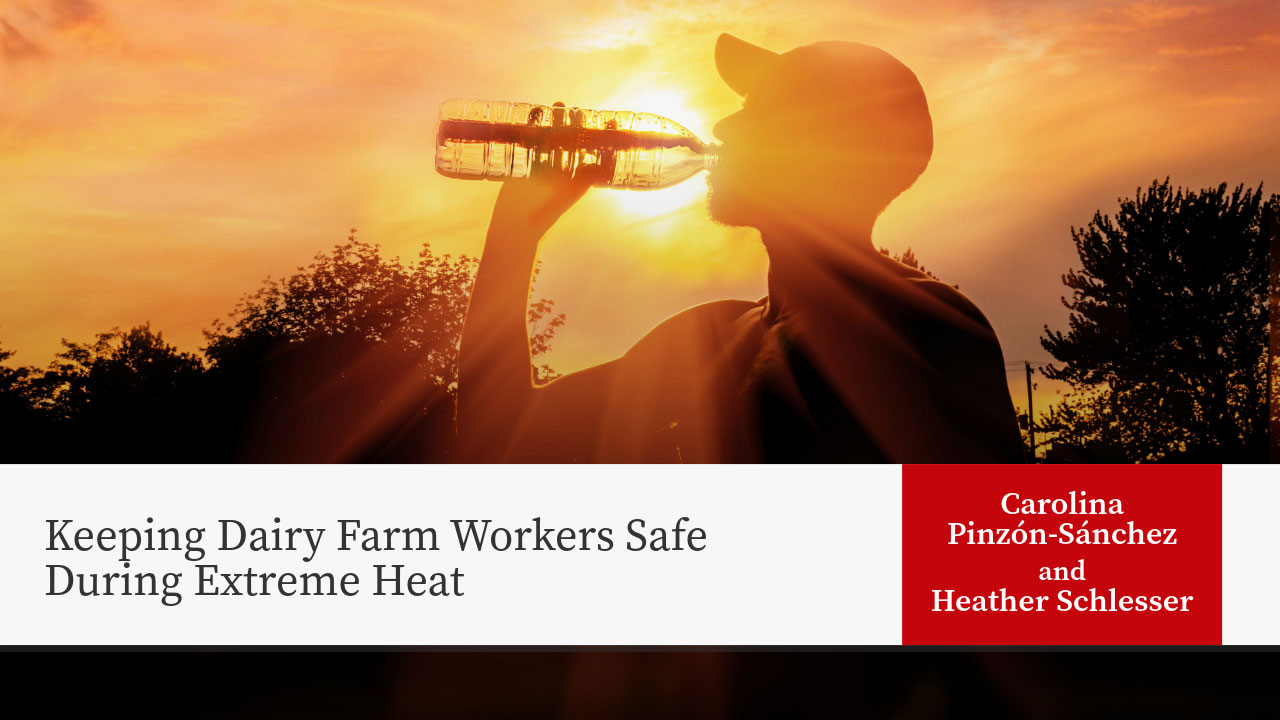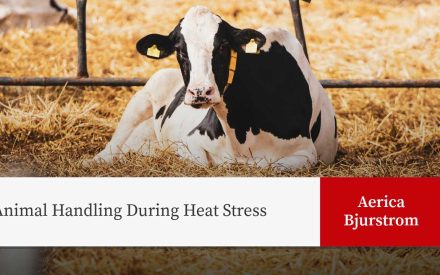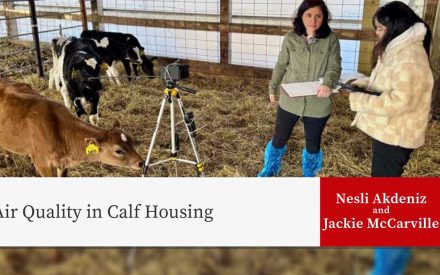
Introduction
Working on dairy farms during hot weather presents unique challenges. Heat exposure kills more people annually than floods, tornadoes, lightning, and hurricanes combined.
To ensure the safety of farm workers, follow these guidelines:
Recognizing and Responding to Heat-Related Illnesses
| Heat-Related Illness | Symptoms | Actions |
|---|---|---|
| Heat Exhaustion | • Cool, moist skin • Heavy sweating • Headache • Nausea • Dizziness •Exhaustion | • Move the person to a cool, shaded area. • Loosen clothing. • Apply wet clothes. • Offer cool fluids. • Seek medical help if symptoms persist. |
| Heat Stroke | • Hot, red, and dry skin • Changes in consciousness • Rapid pulse • Shallow breathing • High body temperature (up to 105°F) | • Call 911 immediately. • Cool the person with water and fans. • Offer cool liquids if they are alert. |

Practical Tips to Prevent Heat-Related Illnesses
Dress right
- Wear light-colored, loose-fitting, breathable clothing.
- Wear wide-brimmed hats and sunglasses.
- Apply sunscreen to protect against sunburn and skin cancer.
Stay Hydrated
- Drink 1 cup of water every 15-20 minutes.
- Avoid caffeine, sugary, and alcoholic drinks.
- Monitor urine color (it should be clear).
Take Regular Breaks
- Plan strenuous tasks for cooler parts of the day (morning or evening).
- Schedule frequent breaks and/or shorter work periods.
- Rest in shaded or well-ventilated areas, or an air-conditioned room if available.
Conclusion
Let’s ensure a safe working environment for all dairy farm employees during extreme heat. By being aware and taking specific actions, people can make sure they and those around them beat the heat. Remember: Dress right, stay hydrated, take breaks, and be aware.
Authors

Carolina Pinzón-Sánchez
Bilingual Dairy Outreach Specialist – As a statewide Dairy Outreach Specialist, Carolina identifies needs and incorporates research findings into high-quality outreach education programs around dairy production.

Heather Schlesser
County Dairy Educator – Heather Schlesser is an Agriculture Educator in Marathon County. Heather’s research and outreach have included the use of current technology to enhance farm profitability and sustainability. Her current projects include the Animal Wellbeing Conference, the Midwest Manure Summit, Beef Quality Assurance, financial programming, and teaching farmers throughout the Midwest how to breed their own cattle.
Original Authors
Heather Schlesser with Jim Versweyveld.
Original publication date: August, 2020
Revised: June, 2025


 Animal Handling During Heat Stress
Animal Handling During Heat Stress ▶️ Watch: Understanding the carryover effects of early life heat stress on dairy calves
▶️ Watch: Understanding the carryover effects of early life heat stress on dairy calves Air Quality in Calf Housing
Air Quality in Calf Housing ▶️ Watch: Preparing Calves for the Road Ahead
▶️ Watch: Preparing Calves for the Road Ahead


